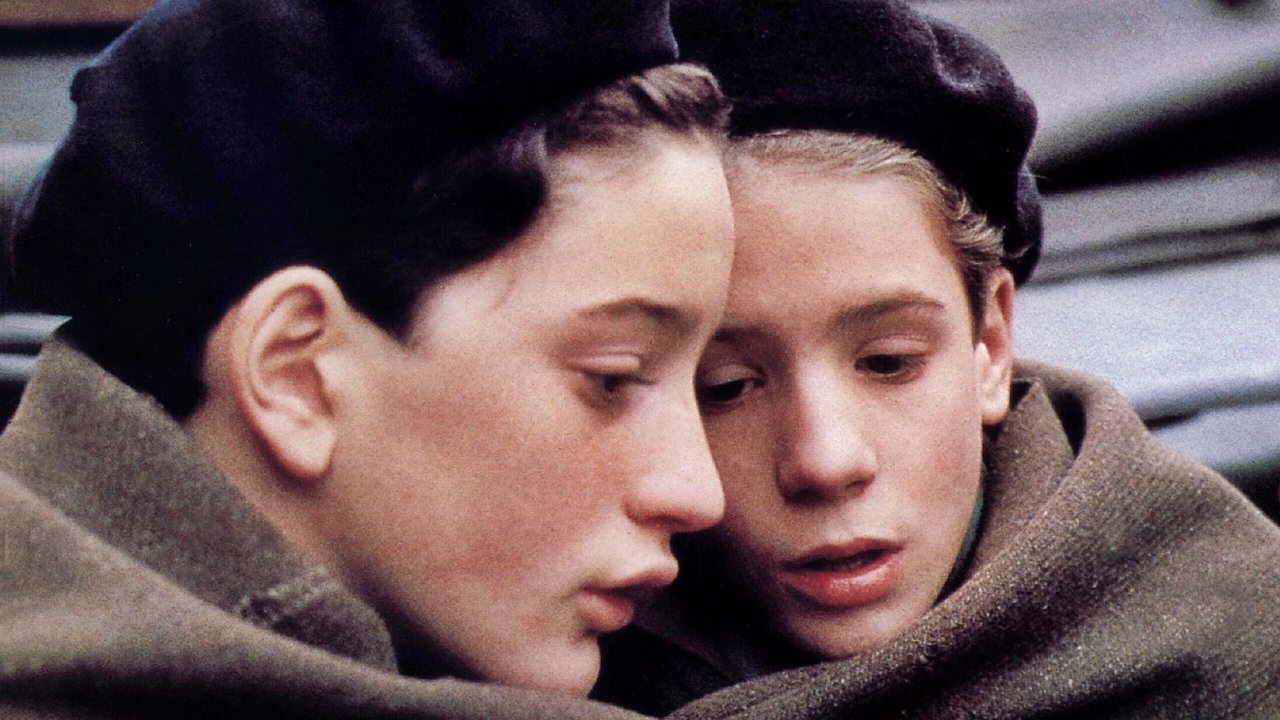sharky_55
Upon the first viewing of Au revoir les enfants, we are as engrossed into the mystery of Jean Bonnet as the young Julien Quentin is. And on a second viewing, the little clues become a great deal clearer, and we are able to piece together the puzzle a little quicker than the inquisitive young boy. But of course the modern older viewer has the frame of context and knowledge that Julien does not have - he knows the telltale signs of a Jew, but cannot figure out why they are hunted and persecuted so diligently, when all he sees is one of his close friends. And so the entire film is tinged in regret; even as Jean reminds him that he would have been caught anyway, we feel the chain of events that lead to that monumental morning being so painful to remember, and that one fatal glance that led to a death on his hand. Louis Malle works with his memories and experiences, and here he has crafted a group of young schoolboys so reminiscent and convincing. He has captured that remarkable knack and ability of young boys to be able to hastily create relationships out of nothing, sever them, and hastily mend them all over. They pipe up at any opportunity to make a joke on someone else's behalf, and take playful violence to the limit, and are all friendly the next day. And any child would remember cheering whenever they got a break from school-work - here it is within the grim context of air raids, but they cheer anyway, and when the teacher starts a prayer, they all instinctively join in. Why this succeeds is that Malle does not overdo the World War 2 setting; these boys certainly do not take the war so seriously, so he takes on that viewpoint. They playact as knights on stilts and knock each other over as real soldiers fight, but it might as well be another day for them. They trade books with dirty stories in them, and cackle at a rare viewing of Chaplin. When a German soldier stands up to a French collaborator in the restaurant and the whole establishment rallies around an elderly Jewish customer, there is an sinister undercurrent about it, but this is viewed through the innocent lens of Julien, who seems to know that what is happening is bad, and instinctively covers for his Jewish friend, but does not understand why being Jewish is bad thing. He is at the centre of the narrative, at the tender age where he is still a mummy's boy, but like many blossoming teenagers puts on a braver, cooler front: indeed his first lines to Jean are a thinly veiled threat to not mess with him. He has little moments of cheekiness and intelligence, bartering his mother's jam and pretending to drown in the bathtub to avoid the wrath of taking too long. And there is a subplot of his uncertainty around his future aspirations that links towards the courageous actions of the priest Père Jean; mentors whisper that he does not quite have the calling of priesthood, and his mother coddles and suggests taking on the same occupation as his father in engineering, and in the same vein his piano playing is not quite up to scratch, so he is recommended taking up violin. But he does have those same qualities as Père Jean anyway. A bitter Joseph mocks him for being so pious and generous when it is war and it is every man for himself - "They're just Jews," he spits outs. But it is the rejection of this statement by Julien that rings so true and brave - it is in those small acts of defiance, and those brief friendships that shine brightly in the darkness of the Holocaust, that our humanity remains.
Chris Silver
Au Revoir Les Enfants- France 1987This is #4 on the list.This movie, is heartbreakingly true. It's sad, and the whole spectrum is sad.Saying that, and knowing I have empathy towards all those affected by the holocaust and how tragic it was. But this movie was not at all what I thought it would be. Coming in expecting a heart-tear-wrenching movie that would make me sad, happy, and emotional. But besides the idea of this being a true story, no, It did nothing for me. The directing was cliché for this type of movie, but I was expecting that. But I had no idea that the film would be so, so, out of the ordinary in character development as well as plot movement. The characters don't do much "developing" till half way till the movie is over. Hell, the two main characters who are supposed to be friend, don't even become apprentices till late in the movie.There is not much to say about the movie and the production efforts because they were predictable. But the story, could've been told so much better. Maybe I am just that really awful and cruel guy who can't appreciate the movie for what it is because I thought the story should've been more dramatized but hey, I'm a child of the 21st century. Don't get me wrong, I don't hate it, but I can't say I relatively "Liked" it.SilverRating: 5/10
tieman64
"To make up for its lack of a moral compass, the public is prey to sudden gusts of kitschy sentimentality followed by vehement outrage, all encouraged by the cheap and cynical sensationalism of its press." – Theodore Dalrymple Louis Malle's "Au Revoir Les Enfants" tells the tale of a young Jewish child who is sheltered from the Nazis (and Vichy police) by a Catholic school during World War 2. The film is the spiritual sequel to Malle's earlier "Lacombe, Lucian" - another autobiographical tale about a boy sold out to the Nazis - but is directed with much more skill. This is the glossiest and slickest of Malle's films.The bulk of the film concerns the blossoming friendship between a young French boy and Jewish boy, and their fears of living away from their parents and home. It is along these lines that the film works best, Malle capturing the confusion, fear, vulnerability and wonder of youth. One scene, a school organised treasure hunt in the woods, is powerful.While the film thinks it is "enlightened" and "liberal", it merely offers another form of anti-Semitism. Malle depicts Jews as cute, lovable, superior and exotic, systematically reversing the sinister venalities of Nazi agitprop. Malle's camera is infatuated with young, Jewish beauty, salivating over the Jewish child and fawning over his "talents", "innocence", "grace" and "allurement". In boot-licking the Jew's preciousness, the film not only suggests that a less attractive non-Jewish child is less worthy of being spared, but partakes in the very same kind of "objectification of humanity" that the Nazis did, such a stance being one of the psychological mechanisms that enabled the Holocaust and continues to fuel knee-jerk anti-Semitism today.The film is shot in icy greys, whites and blues, and is structured as a series of recollections by a now adult Malle (the tale is partially autobiographical). Malle's camera coddles and sighs over the Jewish boy, and then weeps when the kid is removed, during the film's climax, from the school compound by Nazi soldiers. Interestingly, it is a poor youth who turns the Jewish boy in to the Nazis; working class resentment smoothly misdirected toward society's scapegoats.8/10 - Worth one viewing.
kenjha
Like most people, Malle had an uneventful childhood as he attended a boarding school in France. Unlike most people, Malle felt a need to make a movie about this rather dull period of his life. There is nothing very interesting about watching boys going through their daily routines at school. There is no plot, just random episodes that fail to sustain a narrative flow. There's an extended scene where the two main characters are separated from their troop while playing a game in the woods. It seems like it's building up to something dramatic, but it just fizzles out. The final scene is powerful, but does not warrant having to sit through the rest of this underwhelming drama.


 AD
AD


